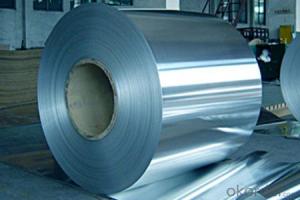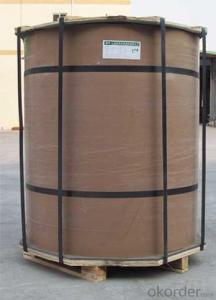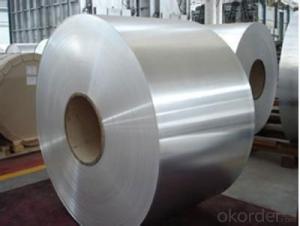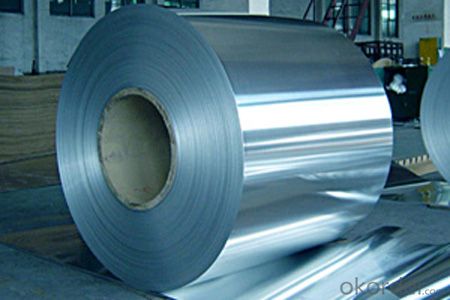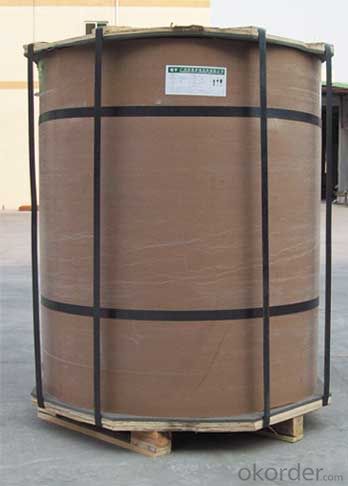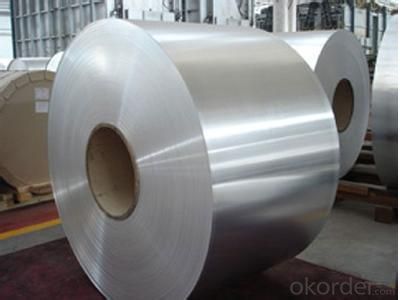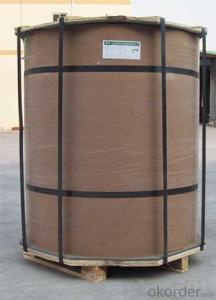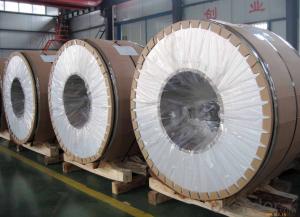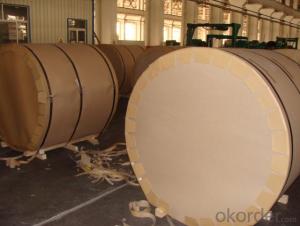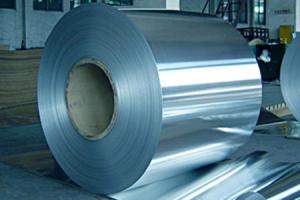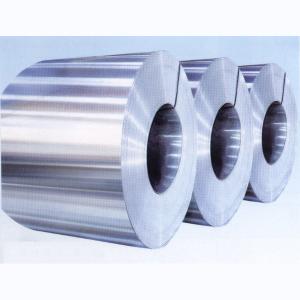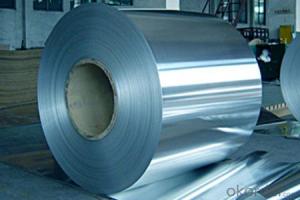Flat Rolled Aluminum Coil Illinois - AA3XXX Mill-Finished Aluminum Coils for Construction
- Loading Port:
- Shanghai
- Payment Terms:
- TT OR LC
- Min Order Qty:
- 3 m.t.
- Supply Capability:
- 10000 m.t./month
OKorder Service Pledge
OKorder Financial Service
You Might Also Like
Specification
1.Structure of AA3xxx Mill-Finished Aluminum Coils Used for Construction Description
AA3xxx Mill-Finished Aluminum Coils Used for Construction has great ductility, heat conductivity, anti-corrosion and moisture resistance properties.
AA3xxx Mill-Finished Aluminum Coils Used for Construction is widely used for electronics, instruments, lighting decoration, packing industry, house decoration, curtain wall, honeycomb-core panel, sandwich panel, aluminum composite panel and aluminum composite pipes.
2.Main Features of AA3xxx Mill-Finished Aluminum Coils Used for Construction
• Superior quality of raw material
• Reasonable and stable chemical composition
• Accurate tolerance
• Goode mechanical property
3.AA3xxx Mill-Finished Aluminum Coils Used for Construction Images
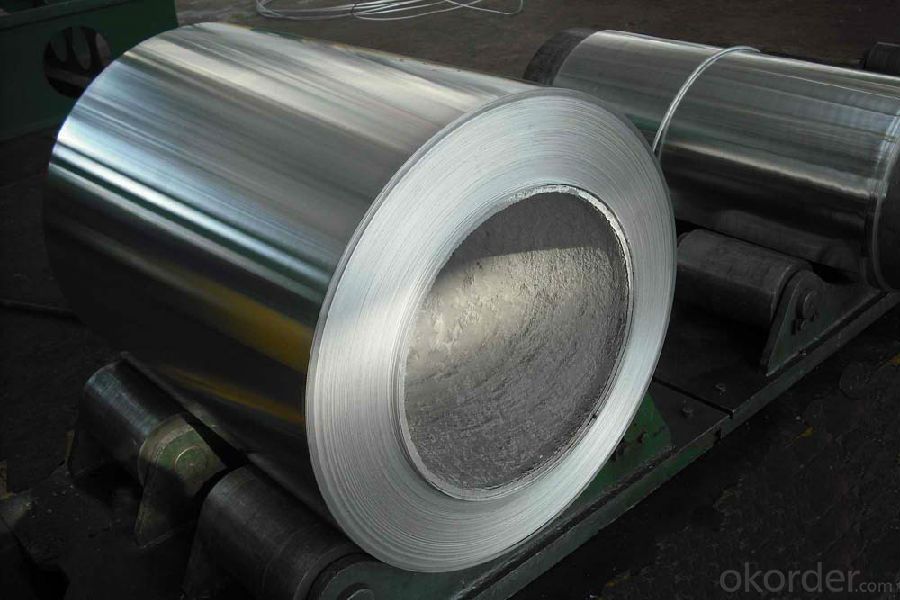
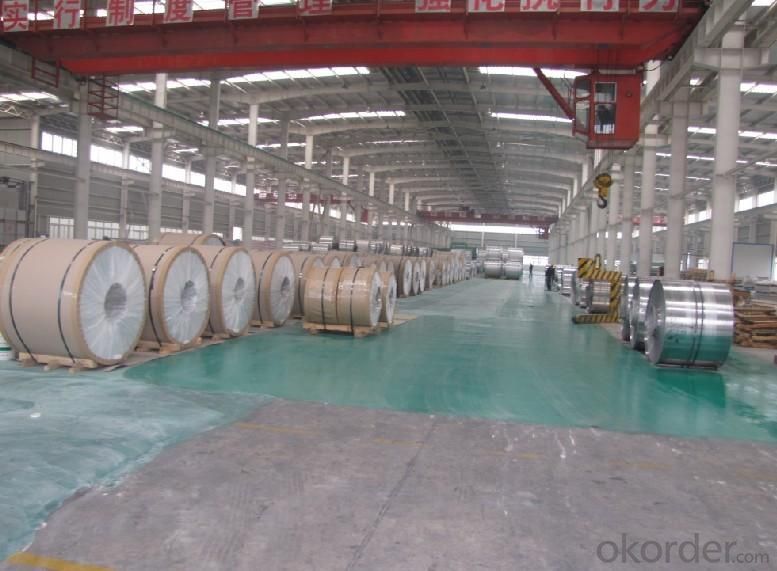
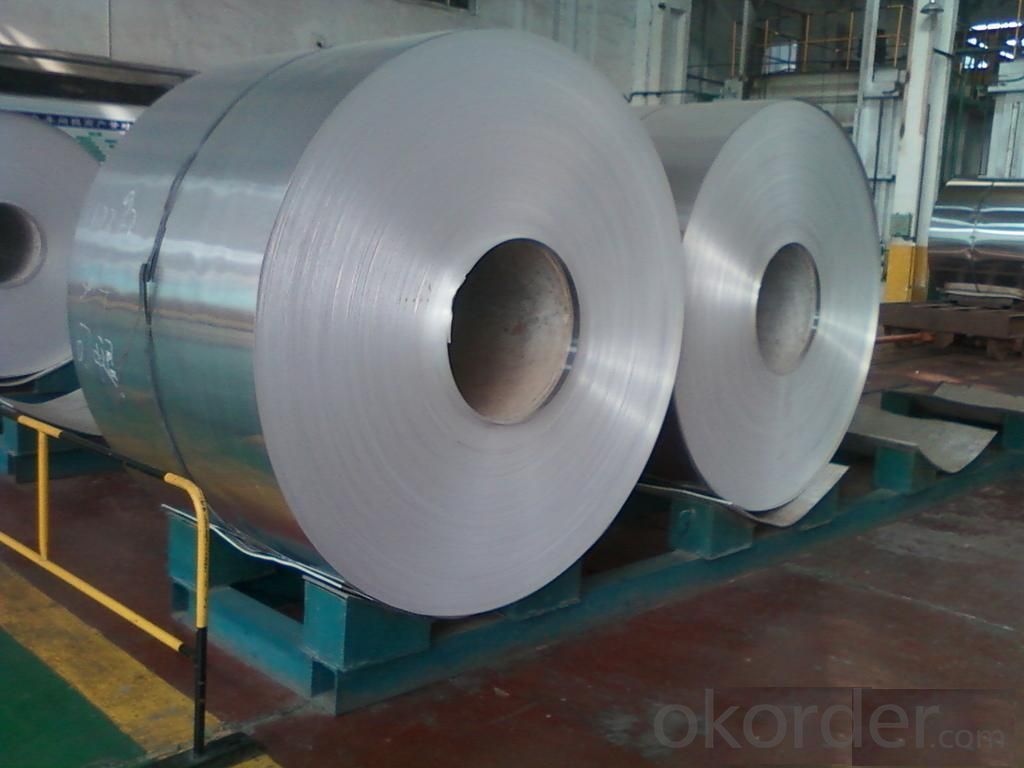
4.AA3xxx Mill-Finished Aluminum Coils Used for Construction Specification
Alloy | AA3xxx (AA3003 etc. |
Temper | H14,H16, H18, H22, H24, H26, H32, O/F |
Thickness | 0.2mm -- 100mm |
Width | 30mm -- 1700mm |
Standard | GB/T 3880-2006,EN,ASTM,JIS |
5. FAQ of AA3xxx Mill-Finished Aluminum Coils Used for Construction
A.How to guarantee the quality?
Customers are welcome to our mill to visit and check the products. Besides, we can arrange a third party to test AA3xxx Mill-Finished Aluminum Coils Used for Construction.
B.When will you deliver the products?
AA3xxx Mill-Finished Aluminum Coils Used for Construction will be delivered within 35 days after receiving advanced payment or original L/C.
- Q: Can aluminum coils be used for gutter systems?
- Indeed, gutter systems can employ aluminum coils. The lightweight property, durability, and resistance to rust and corrosion make aluminum a favored material for gutters. It is common practice to utilize aluminum coils to shape seamless gutters, which present benefits such as reduced leakage and an enhanced visual appeal. Moreover, maintaining aluminum gutters is effortless, and they can be painted to harmonize with a building's exterior. All in all, aluminum coils are a fitting and frequently employed option for gutter systems.
- Q: Well, we've got the existing old school 7 layers of peeling yucky painted siding and we're trying to weigh our options. So here's my questions:1) Is it cost effective to replace Aluminum with Vinyl?2) Is Vinyl truly as costly as we keep hearing? **Home is small 1,100 sq.ft with a 2.5 car Garage**3) Is painting this existing siding a wise choice since the current paint job on it looks terrible? We just need to make it more a home, right now it's gorgeously all new and redone inside and on the outside it still resembles the day we bought it in forclosure. Aside from my green grass I busted my butt on last summer.Please advise.
- Vinyl is final. Change your siding. It will cost a little more now, but you will save a lot in the long run. If it buckles like one of your other answers, It means that it was installed improperly. Vinyl should not be nailed to tight. It needs to expand and contract with the temperature changes.
- Q: Are there any restrictions on the coil flatness of aluminum coils?
- Yes, there are restrictions on the coil flatness of aluminum coils. The industry standards specify acceptable tolerances for coil flatness to ensure the quality and usability of the aluminum coils. These restrictions help prevent any deformation or irregularities in the coils, ensuring they meet the required specifications for various applications.
- Q: What are the different tempers of aluminum coils?
- Different levels of hardness and strength can be achieved through various heat treatments for aluminum coils, resulting in different tempers. These tempers alter the physical and mechanical properties of the coils to suit specific applications. Aluminum coils can undergo different tempering processes to modify their properties. The most common tempers for aluminum coils are as follows: 1. O Temper (Soft): This represents the annealed state of aluminum, where the metal is fully soft and easily moldable. It has low strength but excellent ductility, making it suitable for applications that require extensive shaping or bending. 2. H14 Temper (Half Hard): This offers moderate strength and hardness, while still maintaining some formability. It is used in applications that require a balance between strength and flexibility, such as roofing or cladding. 3. H18 Temper (Hard): This provides high strength and hardness, with reduced formability. It is commonly used in applications that demand structural integrity and resistance to deformation, such as automotive parts or industrial equipment. 4. H22, H24, H26 Temper (Extra Hard): These tempers are achieved through additional cold working or strain hardening processes. They offer even higher strength and hardness but sacrifice some ductility. They are often used in applications that require enhanced mechanical properties, such as aerospace components or high-stress structural parts. 5. T Temper (Tension Leveled): This involves stretching the aluminum coil beyond its elastic limit and then stabilizing it. It helps eliminate internal stresses and improve flatness, making it suitable for applications that demand precise dimensional stability, such as electronic devices or architectural panels. It's important to note that there are many other tempers available for aluminum coils, each designed to meet specific requirements. The choice of temper depends on factors such as the intended application, desired mechanical properties, and processing capabilities.
- Q: This question is asking about the potential negative effects or hazards associated with the use of aluminum coils.
- <p>The use of aluminum coils can pose certain risks and dangers, primarily due to their high thermal conductivity and reactivity. When used in cooking or heating applications, aluminum coils can cause uneven heat distribution, which may lead to burning or melting of food. Additionally, aluminum can react with acidic or alkaline foods, potentially leaching aluminum into the food and causing health concerns such as neurological disorders and bone diseases. Moreover, aluminum coils can corrode over time, especially when exposed to moisture or certain chemicals, which can weaken their structure and pose a risk of breakage or injury. It's important to use aluminum coils appropriately and to monitor their condition regularly to minimize these risks.</p>
- Q: What kind of sensor is appropriate for aluminum coil thickness measurement?
- Use two sensors of ZLDS10X series to make a thickness gauge
- Q: Why do the layers loose when taking out coil after roll of aluminum 0.14?
- After rolling, the most possible reason may be poor deoiling effect. I think, for 0.14mm aluminum coil, the lining sleeve will not be forgotten. After rolling , oil ooze from aluminum layers, and the support of aluminum coil is not enough, leading to coil collapsing. The specific manifestations are that the edges of even round aluminum layers become like water ripple, and that the aluminum coils suddenly become uneven when taking out coil.
- Q: Can aluminum coils be used for window frames?
- Certainly, window frames can indeed be made using aluminum coils. Aluminum is widely favored for window frames owing to its enduring nature, lightweight composition, and ability to resist corrosion. It is extensively employed in both residential and commercial settings. Aluminum coils can be effortlessly molded and adjusted to accommodate diverse window dimensions and designs. Additionally, aluminum frames provide exceptional thermal insulation qualities, thereby enhancing energy efficiency in structures. All in all, aluminum coils represent a dependable and pragmatic choice for constructing window frames.
- Q: How much is one ton of aluminum coil?
- The price of aluminum sheet is calculated according to the price of aluminum ingot + processing fee (aluminum plate state), and the specific price is also different according to the size and size of aluminum sheet.If you have any questions, please ask. I hope to help you.
- Q: How do aluminum coils compare to other metal coils?
- Aluminum coils offer several advantages when compared to other metal coils. Firstly, aluminum is a lightweight material, which makes it easier to handle and transport. This characteristic also contributes to lower shipping costs. Additionally, aluminum coils have excellent corrosion resistance, making them suitable for various environments and applications. They are also highly malleable, meaning they can be easily bent and shaped without compromising their structural integrity. Moreover, aluminum coils have good thermal conductivity, enabling efficient heat transfer in applications such as HVAC systems. Finally, aluminum is a highly sustainable and recyclable material, making it an environmentally friendly choice. Overall, aluminum coils provide a cost-effective, durable, and versatile option compared to other metal coils.
Send your message to us
Flat Rolled Aluminum Coil Illinois - AA3XXX Mill-Finished Aluminum Coils for Construction
- Loading Port:
- Shanghai
- Payment Terms:
- TT OR LC
- Min Order Qty:
- 3 m.t.
- Supply Capability:
- 10000 m.t./month
OKorder Service Pledge
OKorder Financial Service
Similar products
Hot products
Hot Searches
Related keywords
